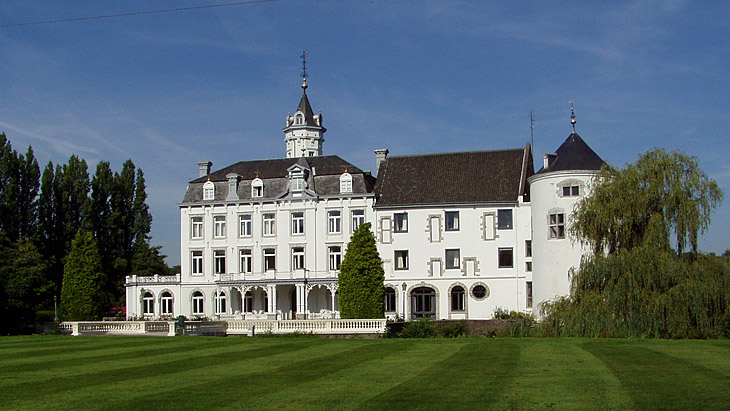How will hotels embrace and utilize co-creation and experiential marketing in the future?
未来酒店将如何拥抱和利用共创和体验式营销?
酒店营销管理代写 With changing consumer preferences about almost everything, companies in every industry need to reimagine the way they approach
Introduction
With changing consumer preferences about almost everything, companies in every industry need to reimagine the way they approach their customers. The technology has change the lifestyle of people and the new lifestyle made many marketing practices irrelevant. Companies now need to evolve their business processes to offer not just a product or service that fulfills the needs of their customers, but an experience. Hotel industry is not immune to this change, in fact ever since the introduction of companies like Airbnb, hotel industry is facing really tough competition.
To counter this growing challenge, hotels now need to use experiential marketing to attract and retain their customers. They must also focus on using co-creation with it to make sure that their customers feel engaged and entertained. In this regard, the study is going to explore a few dimensions of how hotels in the future can benefit from experiential marketing and co-creation. For this study, a fictitious hotel is “Hotel Luxury” will be made a case to apply the theory and strategy on to.
介绍
随着消费者对几乎所有事物的偏好不断变化,各行各业的公司都需要重新构想他们接触客户的方式。技术改变了人们的生活方式,新的生活方式使许多营销实践变得无关紧要。公司现在需要发展他们的业务流程,不仅要提供满足客户需求的产品或服务,还要提供一种体验。酒店业也不能幸免于这种变化,事实上自从Airbnb等公司推出以来,酒店业就面临着非常激烈的竞争。
为了应对这一日益严峻的挑战,酒店现在需要使用体验式营销来吸引和留住客户。他们还必须专注于使用与它的共同创造来确保他们的客户感到参与和娱乐。在这方面,该研究将探索未来酒店如何从体验式营销和联合创造中受益的几个方面。对于本研究,将以虚拟酒店为“豪华酒店”,以将其理论和策略应用到其中。酒店营销管理代写
Impact of co-creation on hotel industry
Although, hotel industry is all about intercommunication with the customers thus it creates a very conducive environment for co-creation. However, only a few companies till now have opted to implement this strategy. By working with consumers, hotel industry can help create a unique experience for their customers, which would get them positive reviews on social media. According to Chu & Kim (2011), even in the age of social media word of mouth still is the best way to get more customers.
People trust people instead of businesses or marketing tactics.
Therefore Peppers & Rogers (2016) argued that the best marketing tactic for any company to follow is to focus on providing a unique and pleasant experience to their customers, which Chathoth, Ungson, Harrington & Chan (2016) believe can only be created in the hotel industry with co-creation. According to Oyner and Korelina (2016) in Russia, only international hotels are focusing on value co-creation to engage their customers.
共创对酒店业的影响
虽然,酒店业都是与客户交流的,因此它为共同创造创造了一个非常有利的环境。然而,到目前为止,只有少数公司选择实施这一战略。通过与消费者合作,酒店业可以帮助为其客户创造独特的体验,这将使他们在社交媒体上获得正面评价。根据 Chu & Kim (2011) 的说法,即使在社交媒体口碑传播的时代,口碑仍然是获得更多客户的最佳方式。
人们信任人而不是企业或营销策略。
因此,Peppers & Rogers (2016) 认为,任何公司都应遵循的最佳营销策略是专注于为客户提供独特而愉快的体验,Chathoth、Ungson、Harrington & Chan (2016) 认为这只能在共创酒店业。据俄罗斯的 Oyner 和 Korelina(2016 年)称,只有国际酒店才专注于价值共创以吸引客户。酒店营销管理代写

The authors identified that by providing customize experience.
Co-production, and service innovation hotels in Russia are trying to engage their customers to make their experience with them pleasant. Oyner and Korelina (2016) did identify that co-creation is still in its nascent stage in Russia, which is why co-creation along with customization is used often by international hotels. Ngugi, Johnsen & Erdélyi, (2010) in their study also confirmed that co-creation in the contemporary business environment is the best strategy for any hotel – small or large – to adopt.
Hotel Luxury being a high-end hotel chain with presence in over 25 countries should focus on value co-creation as a tool to bring more business and increase its overall revenue. Since, value co-creation is still a new trend in the hotel industry, thus Hotel Luxury can enjoy an early mover advantage, which will help it strengthen its brand image while generating positive word of mouth. If the hotel manages to engage its customers effectively, then it can easily expect at least 50% increase in its revenue within six months.
作者通过提供定制体验来确定这一点。
俄罗斯的联合制作和服务创新酒店正试图吸引他们的客户,让他们的体验愉快。 Oyner 和 Korelina(2016)确实指出,共同创造在俄罗斯仍处于起步阶段,这就是为什么国际酒店经常使用共同创造和定制。 Ngugi,Johnsen和Erdélyi(2010)在研究中还证实,在当代商业环境中共同创造是任何酒店(无论大小)采用的最佳策略。
作为在全球超过25个国家/地区拥有业务的高端连锁酒店,Hotel Luxury应重视价值共创,以此作为带来更多业务和增加整体收入的工具。由于价值共创仍然是酒店行业的新趋势,因此Hotel Luxury可以享有先发优势,这将有助于其巩固品牌形象,同时产生积极的口碑。如果酒店设法有效地吸引客户,那么它很容易预计在六个月内收入至少增加 50%。酒店营销管理代写
What value experiential marketing can bring?
According to Smilansky (2017), the technological revolution has changed the way hotels used to utilize experiential marketing. It has now reached to a completely new level, which warrants hotels to be more sophistication in their efforts and more creative in their approach. Hotels are now focusing on creating a unique experience for their guest that is not only innovative but also creates a positive word of mouth, garners media attention and improves brand image.
Hotels are focusing more on understanding their consumers want in the wake of changing business trends and are making efforts to capture their imagination.
According to Maghnati. Ling & Nasermoadeli (2012), experiential marketing is used with value co-creation can increase the revenue of any company. Alkilani, Ling & Abzakh (2012) mentioned that since experiential marketing is all about engaging customers directly and giving them a unique and memorable experience about brand, thus it is important for brands to create activities that produce similar impact on all consumers regardless of their gender, race, or education.
体验营销能带来什么价值?
根据 Smilansky (2017) 的说法,技术革命改变了酒店过去利用体验式营销的方式。它现在已经达到了一个全新的水平,这保证了酒店的努力更加复杂,在他们的方法上更有创意。酒店现在专注于为客人创造独特的体验,不仅要创新,还要创造积极的口碑、吸引媒体关注并提升品牌形象。
在不断变化的商业趋势之后,酒店更加注重了解消费者的需求,并努力捕捉他们的想象力。
据马格纳蒂说。 Ling & Nasermoadeli (2012),体验营销与价值共创一起使用可以增加任何公司的收入。 Alkilani、Ling & Abzakh (2012) 提到,由于体验营销就是直接吸引客户并为他们提供独特而难忘的品牌体验,因此对于品牌而言,创建对所有消费者产生类似影响的活动非常重要,无论其性别如何、种族或教育。酒店营销管理代写
Hotel Luxury can create a unique engagement experience to its customers via artificial intelligence.
An AI based virtual assistant should be provided to each guest, who will answer every query related to hotel and simultaneously update the hotel management about the guest’s expectations and choices. The use of AI will not only benefit Hotel Luxury in providing an amazing experience to their guest, but will also get them press coverage on international scale. The AI based virtual assistant should be able to answer all the queries of the guests while doing all the ordering for the guests. The only effort the guest would be required to put in was to give command to the virtual assistant verbally.
Hotel Luxury 可以通过人工智能为其客户创造独特的参与体验。
应为每位客人提供基于人工智能的虚拟助手,他们将回答与酒店相关的每个查询,同时向酒店管理层更新客人的期望和选择。 人工智能的使用不仅有利于 Hotel Luxury 为他们的客人提供令人惊叹的体验,而且还将让他们在国际范围内获得新闻报道。 基于人工智能的虚拟助手应该能够在为客人完成所有订购的同时回答客人的所有疑问。 客人唯一需要付出的努力就是口头向虚拟助理发出命令。酒店营销管理代写
Discussion and Analysis
There’s no doubt that effective utilization of experiential marketing along with co-creation can help engage guests and provide them a unique experience. According to Smilansky (2017), experiential marketing is about providing a holistic experience that includes senses, feelings, emotions, lifestyle, and cognition. Shaw, Bailey & Williams (2011) in their study mentioned that experience has become one of the most important indicators of a hotel’s success. It helps in creating a positive word of mouth, which Bill Xu & Chan (2010) mentioned would help hotels build a competitive advantage. Providing a unique experience Cetin & Dincer (2014) argued is the best way for the hotel industry to stay relevant and profitable in the contemporary business environment.
讨论与分析
毫无疑问,有效利用体验式营销和共同创造可以帮助吸引客人并为他们提供独特的体验。 根据 Smilansky (2017) 的说法,体验式营销是提供一种包括感官、感觉、情感、生活方式和认知在内的整体体验。 Shaw, Bailey & Williams (2011) 在他们的研究中提到,体验已成为酒店成功的最重要指标之一。 它有助于创造积极的口碑,Bill Xu & Chan (2010) 提到这将有助于酒店建立竞争优势。 Cetin & Dincer (2014) 认为,提供独特的体验是酒店业在当代商业环境中保持相关性和盈利能力的最佳方式。
Co-creation as per Bowie, Buttle, Brookes & Mariussen (2016) is another main factor that goes hand in hand with experiential marketing,
as this strategy enables hotels to keep their customers engaged. Cabiddu, Lui & Piccoli (2013) in their study said that engaging guests in any activity helps in creating lasting memories. Moreover, guests also tend to share their pleasant memories about any hotel among their social circle, which will certainly bring more business for hotels. However, Pham & Huang (2015) believe that creating an effective experiential marketing strategy that positively influence guests is very challenging and there’s a gap in the research which would require further investigation of how hotels can benefit from experiential marketing in the future.
根据 Bowie、Buttle、Brookes & Mariussen (2016) 的说法,共同创造是与体验式营销密切相关的另一个主要因素,
因为这种策略使酒店能够保持客户的参与度。 Cabiddu, Lui & Piccoli (2013) 在他们的研究中表示,让客人参与任何活动都有助于创造持久的回忆。 此外,客人也倾向于在社交圈中分享他们对任何酒店的愉快回忆,这肯定会给酒店带来更多的生意。 然而,Pham & Huang (2015) 认为,制定有效的体验营销策略对客人产生积极影响非常具有挑战性,研究中存在空白,需要进一步调查未来酒店如何从体验营销中受益 .酒店营销管理代写
Every company’s experiential marketing strategy should be governed by their own internal strategy.
Moreover, hotels need to build an experiential marketing strategy using all the resources available at their disposal at first, before moving on to invest in service innovation and other similar guest engagement activities. Hotels as per the contemporary environment need to devise a co-creation and experiential marketing strategy in such a way that would allow guests to come up with ideas for innovative services. This Alkilani, Ling & Abzakh (2012) believe is not only going to keep customers engage, but if their ideas do get implemented they will propagate it. Moreover, since guests will be creating such activities that interest them, then there’s a huge possibility that it will keep all other guests engaged.
每家公司的体验式营销策略均应受其自身内部策略支配。
此外,酒店首先需要利用所有可用资源制定体验式营销策略,然后再继续投资于服务创新和其他类似的客人参与活动。 根据当代环境,酒店需要设计一种共同创造和体验式营销策略,让客人能够提出创新服务的想法。 Alkilani、Ling & Abzakh (2012) 相信不仅可以让客户保持参与,而且如果他们的想法得到实施,他们就会传播它。 此外,由于客人将创建他们感兴趣的此类活动,因此很有可能让所有其他客人都参与进来。
Conclusion
From the above discussion, it can be concluded that there’s a huge scope of co-creation and experiential marketing in the future for hotel industry. Hotels can leverage from the already developed technologies available at their disposal to create strategies that will engage their customers. Moreover, not only technology but also emotional touch points should also be considered while making any strategy. Engaging a guest is really important to create a perfect memorable experience, but it is emotions that will make the guest recall the hotel every time s/he will narrate the story to anyone. However, if a hotel’s communication policy is unified then all these factors will benefit the company more, as any word of mouth will be similar to the brand’s marketing communication, which will increase the brand recall.
结论
从以上讨论可以看出,未来酒店业的共创和体验营销的空间很大。 酒店可以利用可用的已开发技术来制定吸引客户的策略。 此外,在制定任何策略时,不仅要考虑技术,还要考虑情感接触点。 与客人互动对于创造完美的难忘体验非常重要,但是每一次宾客向任何人讲述故事时,情感都会使客人回想起酒店。 但是,如果酒店的传播策略统一,那么所有这些因素都会使公司受益更多,因为任何口耳相传都类似于品牌的营销传播,这将增加品牌回想度。酒店营销管理代写
References
Alkilani, K., Ling, K. C., & Abzakh, A. A. (2012). The impact of experiential marketing and customer satisfaction on customer commitment in the world of social networks. Asian Social Science, 9(1), 262.
Chathoth, P. K., Ungson, G. R., Harrington, R. J., & Chan, E. S. (2016). Co-creation and higher order customer engagement in hospitality and tourism services: A critical review. International Journal of Contemporary Hospitality Management, 28(2), 222-245.
Chu, S. C., & Kim, Y. (2011). Determinants of consumer engagement in electronic word-of-mouth (eWOM) in social networking sites. International journal of Advertising, 30(1), 47-75.
Maghnati, F., Ling, K. C., & Nasermoadeli, A. (2012). Exploring the relationship between experiential marketing and experiential value in the smartphone industry. International Business Research, 5(11), 169.
Ngugi, I. K., Johnsen, R. E., & Erdélyi, P. (2010). Relational capabilities for value co-creation and innovation in SMEs. Journal of small business and enterprise development, 17(2), 260-278.
Oyner, O., & Korelina, A. (2016). The influence of customer engagement in value co-creation on customer satisfaction: Searching for new forms of co-creation in the Russian hotel industry. Worldwide Hospitality and Tourism Themes, 8(3), 327-345.
Peppers, D., & Rogers, M. (2016). Managing customer experience and relationships: A strategic framework. John Wiley & Sons.
Smilansky, S. (2017). Experiential marketing: A practical guide to interactive brand experiences. Kogan Page Publishers.
Shaw, G., Bailey, A., & Williams, A. (2011). Aspects of service-dominant logic and its implications for tourism management: Examples from the hotel industry. Tourism management, 32(2), 207-214.
Bill Xu, J., & Chan, A. (2010). A conceptual framework of hotel experience and customer-based brand equity: Some research questions and implications. International Journal of Contemporary Hospitality Management, 22(2), 174-193.
Cetin, G., & Dincer, F. I. (2014). Influence of customer experience on loyalty and word-of-mouth in hospitality operations. Anatolia, 25(2), 181-194.
Bowie, D., Buttle, F., Brookes, M., & Mariussen, A. (2016). Hospitality marketing. Routledge.
Cabiddu, F., Lui, T. W., & Piccoli, G. (2013). Managing value co-creation in the tourism industry. Annals of Tourism Research, 42, 86-107.
Pham, T. H., & Huang, Y. Y. (2015). The impact of experiential marketing on customer’s experiential value and satisfaction: An empirical study in vietnam hotel sector. Journal of Business Management & Social Sciences Research (JBM&SSR), 4(1).

商科代写 编程代写 法律学代写 经济学代写 艺术代写




发表回复
要发表评论,您必须先登录。